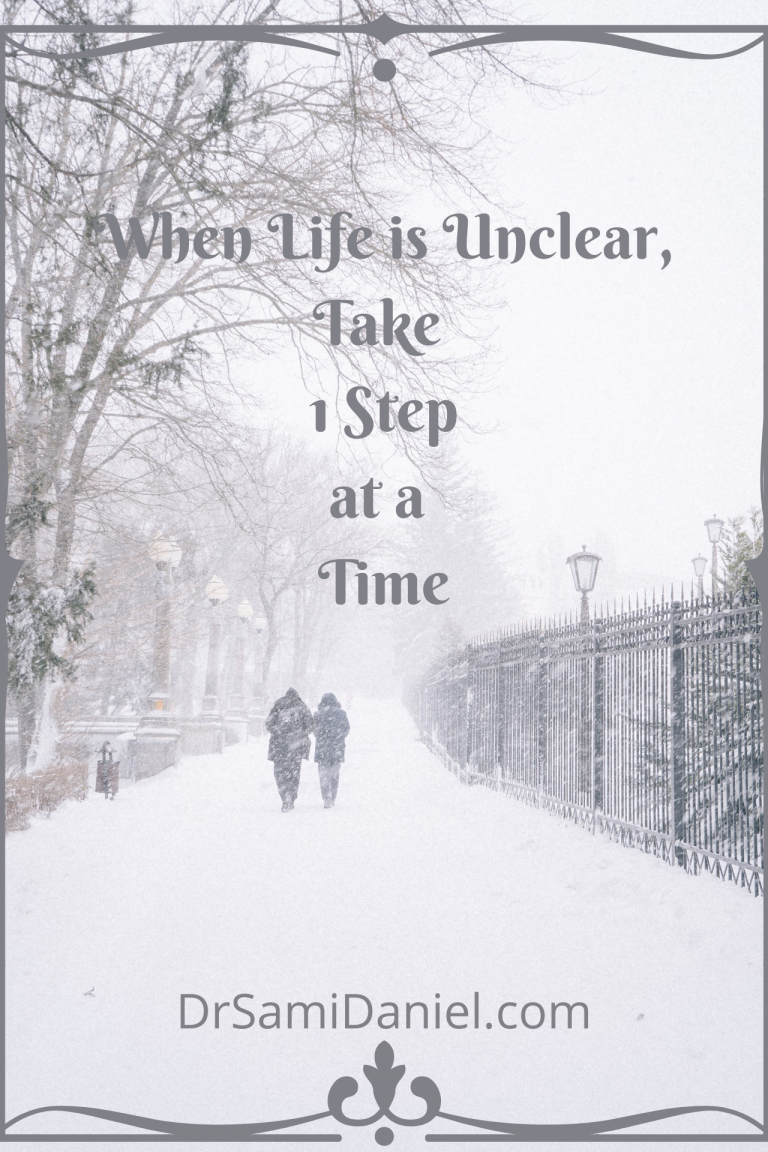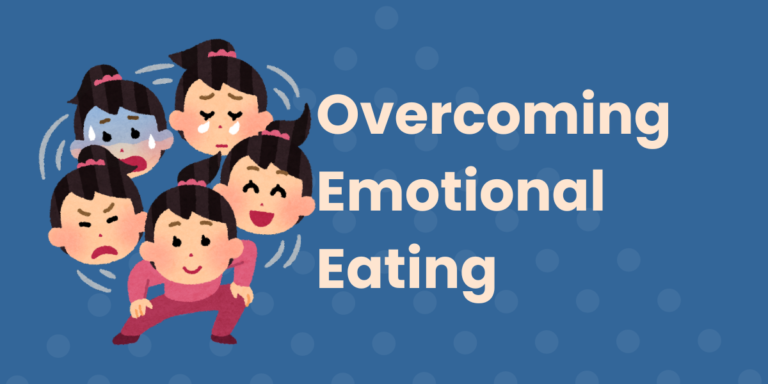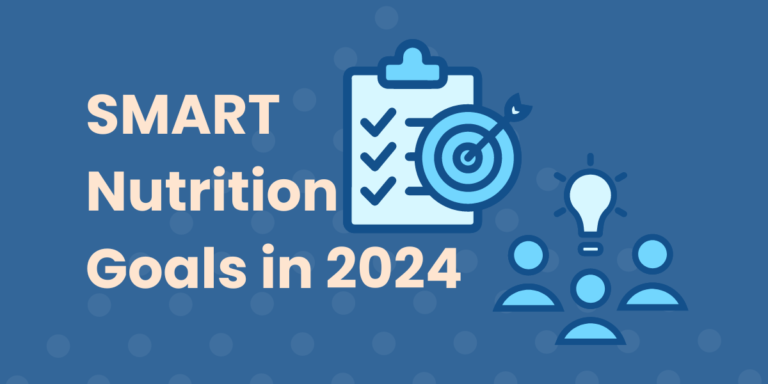9 Weight Loss Myths Your Doctor Wants You To Stop Believing (2025)
We do our best and get nowhere.
A new idea, product, or service promises to help you lose weight fast and give you the sexy body you’ve always wanted.
Then, disappointment sets in.
It is not only disappointment. We get frustrated, angry, heartbroken, and feel like failure.
We lose hope until the next idea, product, or service promises the same thing with a game changing twist!
So the downward spiral continues.
How are we supposed to trust anybody anymore?
Let’s walk through a few myths together.
Let’s see how these weight loss myths help, where they falter, and how you can trust your body’s signals.
The “Starvation Mode” Myth: Understanding Your Body’s Real Response to Calorie Reduction
TL;DR
- Your story is not a number game.
- Your story is not a simple equation of calories in versus calories out.
- Your story is a human journey with scientific knowledge to help support your vision and your body’s wisdom.
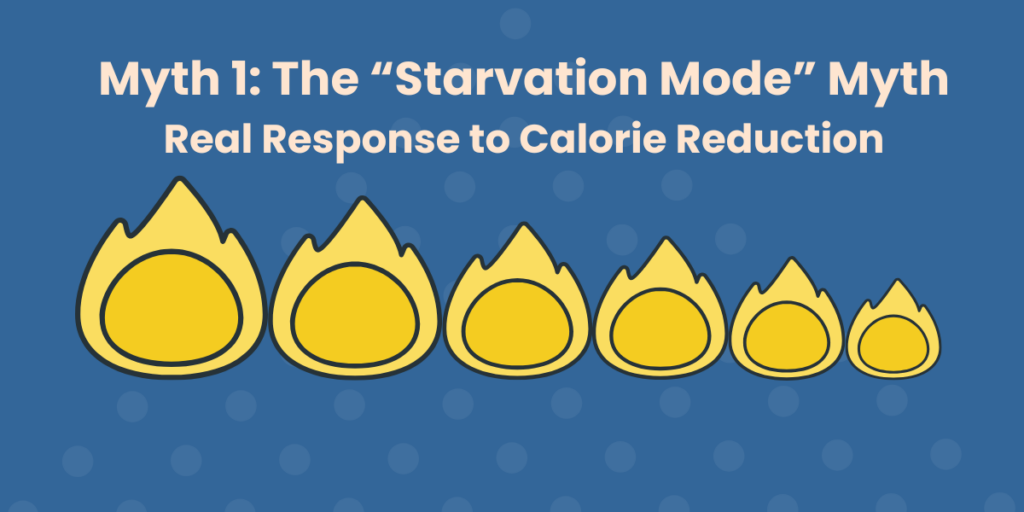
People have this popular belief that a crash diet works.
It works… briefly.
If you’re looking for fast results to look good on a tight deadline, then crash diets work.
I’m not saying you should do them; even as a quick fix.
However, people do see results. So the myth continues.
The problem: Your body is like a smart thermostat. You can learn how to program it and work with your body’s natural rhythm, or you can fight it and reset the temperature.
Here’s a story:
Once upon a time, there lived an old man who decided to prepare for winter.
He sensed this winter would be freezing cold. So he thought of storing a little more lumber for firewood.
So he got to work. He chopped wood for his furnace and filled his storehouse.
Winter soon came.
There were cold days and colder days.
He happily burned wood in his furnace and stayed cozy.
While in his storehouse, he noticed that his supply was getting low. He realized that he would run out before the end of winter. He also knew that he could not go out for more wood.
So he thought to himself, “It’s better to be cold than frozen”.
He started using less wood in his furnace. He was not comfortable, but he survived the winter.
He thought, “How can I be better prepared and survive the next winter?”
He built a bigger storehouse for his firewood and he got to work filling it up to the brim. He insulated his home, resealed the windows, and got an energy-efficient furnace.
“Now, I’m ready for winter.”
Your body’s top priority is for your survival.
So your body is a great bookkeeper.
Your body tracks:
- How many calories did you burn?
- How many calories are left?
- How many calories come in to refuel?
If a diet upsets the books, then explaining the “business” expenses to your boss will feel uncomfortable.
Your metabolic furnace will simmer down once your body realizes these numbers are not sustainable. [1]
Next, your body shores up defenses over the next 40 to 48 weeks to ensure better preparation for future winters (aka diets). [2]
In other words, people regain what they lost.
This also translates to feelings of frustration and defeat.
So we run to the doctor for medical intervention.
However, let’s step back a moment.
Let’s take this moment to appreciate the wonder of our bodies.
The human body works to protect you and make sure that you survive the cold harsh winters of life.
When you have your purpose and values in place, you will know the story that you want to tell.
Coach’s Guidance
It seems like you feel trapped by the cycle of trying different diets. It’s extremely frustrating when you lose your last hope by trying a crash diet.
- How has your body responded when you’ve dramatically reduced calories in the past?
- What would it look like to work with your body instead of fighting it?
- What would it mean to you to truly trust your body’s wisdom?
- How might honoring your body’s survival mechanisms actually support your health goals?
- What can we do differently now?
Why “No Pain, No Gain” Could Be Sabotaging Your Weight Loss Goals
TL;DR
- Your story is not about domination at all costs.
- Your journey demands balance between work and rest.
- Balance is key to achieving lasting wellness.
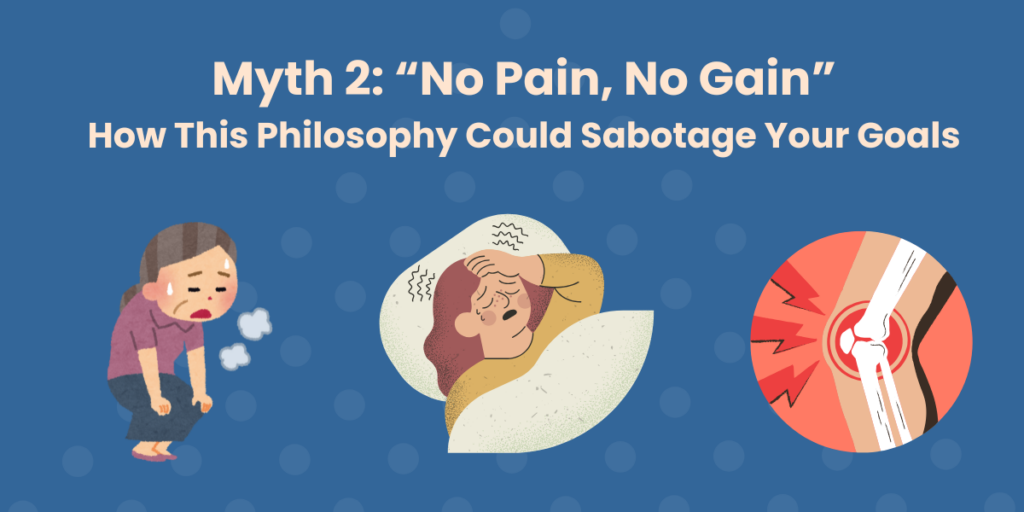
We’ve all heard these motivational phrases:
- “No pain, no gain”
- “Work hard and play hard”
- “Sleep when you’re dead”
- Well… we’ll die if we don’t sleep. So that doesn’t work.
The most insidious phrases seem to acknowledge the need for rest but then don’t fulfill that need.
During my rotations, I’ve often heard that we should, “Use your downtime between patients as an opportunity to eat or stay hydrated.”
I thought, “That doesn’t seem restful”.
So this “downtime” masquerades as rest.
You must optimize the time allotted and jam-pack as much self-care as possible.
Oh, and by the way, who knows when the next patient comes in the door.
So, you’re “on” even when you’re “off”.
Although this comes with the job, you cannot truly and fully recover.
So by the end of the day, I would come home completely exhausted.
Then I do it again.
Is this the definition of insanity? Or determination. Sometimes, it’s hard to tell the difference.
Leaning into perceived boundaries and going further is a beautiful thing.
I’m also a proponent of balancing hard work with resting well; not by playing hard.
More studies are showing the benefits of adequate rest.
We all know that we need to sleep every day.
Sleep helps improve:
- Lowers the risk of insulin resistance and metabolic issues that lead to diabetes. [3]
- Has a positive effect on mental health including depression, anxiety, and stress. [4]
- The same applies to learning new skills. [5]
What is a great hack to lose weight?
SLEEP.
If I am sleep-deprived:
- I get hungrier. [6]
- I eat more fatty foods. [6]
- I gain weight. [6]
So, if you want to lose weight, then proper rest is essential.
Adequate sleep expresses gratitude to your body. You also give your body time to rebalance energy levels.
So take this time to rest.
Allow your mind and body to process the intensity of the day and exercise.
Coach’s Guidance
It sounds like you’re exhausted with constantly trying to push yourself and getting nowhere fast!
- How has the “no pain, no gain” mentality impacted your wellness goals?
- What would it look like to view rest as a critical piece of your fitness journey?
- How does your body communicate its need for rest and recovery?
- How might prioritizing rest allow you to achieve your goals faster?
- What would sustainable progress look like when effort and rest are balanced?
- What small step could you take today?
The Truth About Spot Reduction and Fat-Burning Zones
TL;DR
- Your fitness journey is not about spot reduction or fat-burning zones.
- It’s a holistic process of balanced nutrition, exercise, and rest.
- Honor your body’s natural patterns while working towards overall health and wellness.
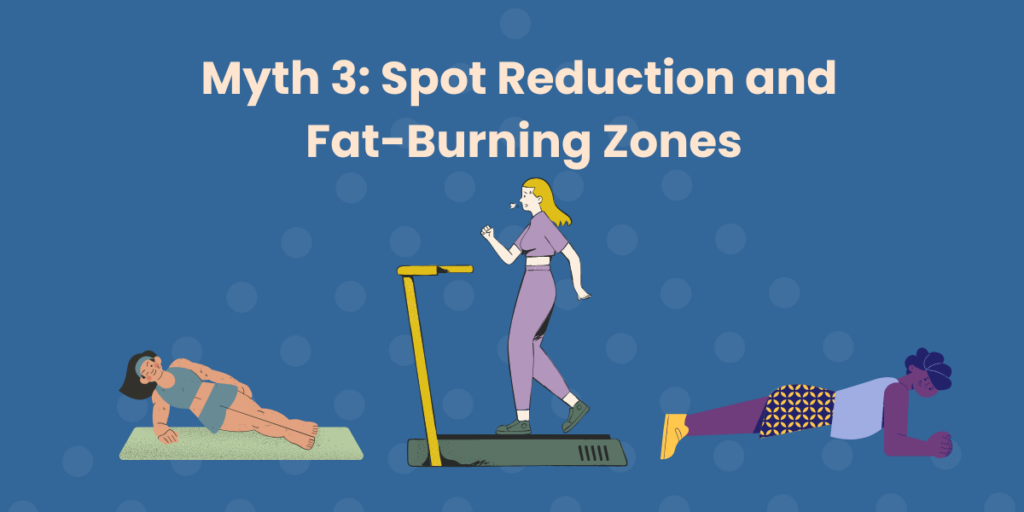
Point-blank, spot reduction does not work. [7]
I’m not entirely sure how this myth originated.
I think spot reduction makes sense because you can spot-train muscle groups.
The problem is that fat does not work the same way.
Muscles are designed to physically pull on bones.
On the other hand, fat is designed to either store or provide energy.
The old man can access his storehouse through one entrance.
The man wants to fill his storehouse to maximize space.
So he starts from the back and slowly moves towards the entrance until he fills every crevice.
Then he gets the firewood by starting at the front door and slowly works his way back.
This way, he maximizes available space and ensures he uses every log effectively.
He cannot randomly decide to start in the middle or the back of the storehouse.
He always starts at the front door and works his way back.
The body uses fat in a similar manner (The true process is more complex than this simple analogy).
So, if you cannot burn belly fat by doing extra sit-ups, then what can we do?
High-intensity interval training (HIIT) or sprint interval training (SIT) can help us burn fat efficiently. [8]
But that’s hard for most of us.
Thankfully, HIIT and SIT are not really necessary to see results.
Moderate-intensity continuous training (MICT) seems to:
- Improve cardiovascular health better than HIIT or SIT
- And provide similar fat-burning results. [9]
We create a sustainable balance of calories in versus calories out.
Coach’s Guidance
It sounds like you’re frustrated and disappointed with the idea that spot reduction is limited or not possible.
- How does spot reduction align with your values?
- How does this idea play into your strengths?
- What story have you been telling yourself about targeting specific body areas?
- What would a balanced approach to fat loss look like for you?
- What would it mean to trust your body’s natural process?
- How can you reframe your fitness goals around this new-found understanding?
- What opportunities does this open up on your health journey?
Debunking the “Carbs Are the Enemy” Mentality
TL;DR
- Carbohydrates are not the enemy.
- Your body’s relationship with food is nuanced. Balancing all nutrients is key.
- Listen to your body’s signals and focus on whole foods to find your optimal balance.
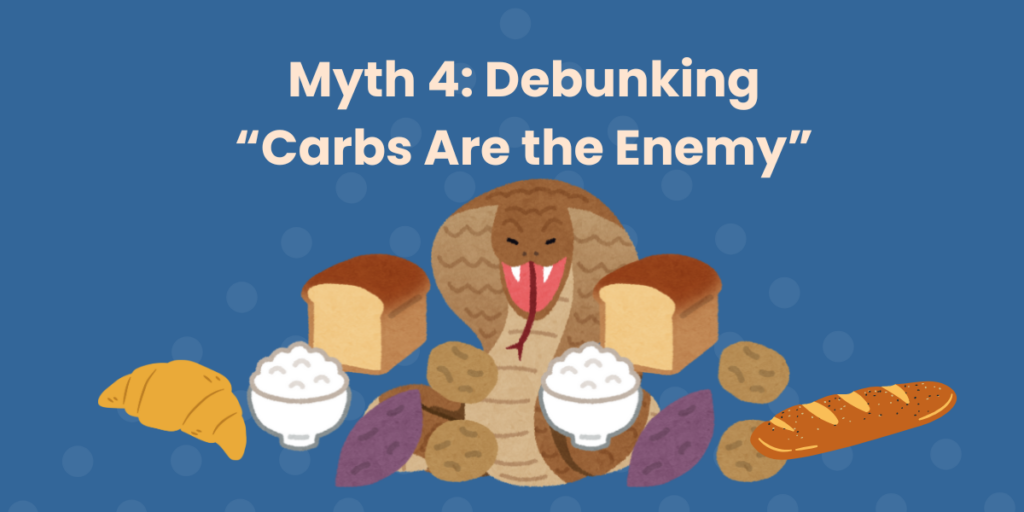
I believed this one for a long time.
I had real proof!
If I ate more carbs, then my pants got snug.
If I ate fewer carbs, then my clothes fit normally.
The results seemed uncomfortably clear to me.
I had tangible proof and I found scientific evidence to confirm my observations (or so I thought).
For example:
- The body does not need carbohydrates to stay alive. [10]
- This may be true, but not optimal for life.
- The body and brain can use ketones to stay alive. [10]
- However, diabetic ketoacidosis hints (not in a subtle way) at the value of balancing carbohydrate and fat metabolism.
- So, finding the right energy balance seems best.
- Low-carbohydrate diets seem to alleviate chronic conditions.
- Significant reduction in Type 2 Diabetes complications seems obvious. [11]
- Pain and arthritis seemed to evaporate. [12]
- Carbohydrates seem to cause weight gain.
- Cutting back on carbohydrates can help weight loss [13]
- Refined carbohydrates can lead to obesity and diabetes [14]
- Then another study found no convincing evidence that dietary carbohydrates cause weight gain. [15]
So what’s going on?!
Again, I had a biased interpretation of studies due to personal experience.
However, finding and maintaining balance is the key to life.
Therefore, doctors recommend cutting back on carbohydrates rather than eliminating them.
Furthermore, we shift the focus to adding more fiber to the diet.
Ironically, this adds carbohydrates to the diet. However, we add them with different fruits and vegetables.
The strategy?
We cut back on refined carbohydrates and create a balance with more whole foods.
- Fruits and vegetables (Carbohydrates and fiber)
- Different types of meat (Proteins and fats)
- Nuts, seeds, and plant oils (Proteins and fats)
Any one of these whole foods, although healthy, can make you unhealthy if taken in excess.
“Too much of a good thing is bad.”
Why?
- Too much of a nutrient set upsets the balance of nourishment.
- By taking only that item, you miss out on nutrients from other healthy options.
- Therefore your nourishment is incomplete and unbalanced.
Remember:
The key is balance.
Our goal is to restore balance and let the body do the rest.
Coach’s Guidance
It feels like you’ve felt frustrated, confused, and overwhelmed by conflicting information about carbohydrates.
- How have your views of carbohydrates influenced your eating habits in the past?
- What story have you told yourself about carbohydrates and your health?
- What would a balanced approach to macronutrients look like in your life?
- How can you reframe your nutrition goals now with greater appreciation of balance?
- What small step could you take today to improve your relationship with macronutrients?
- How might embracing balance, rather than restriction, enhance your overall well-being?
The Reality Behind “Eat Clean to Stay Lean”
TL;DR
- “Clean eating” is not about following social trends.
- Your body defines clean eating for you.
- Listen to your body’s signals and mindfully choosing foods together.
- This partnership leads to better health, more energy, and a richer life.
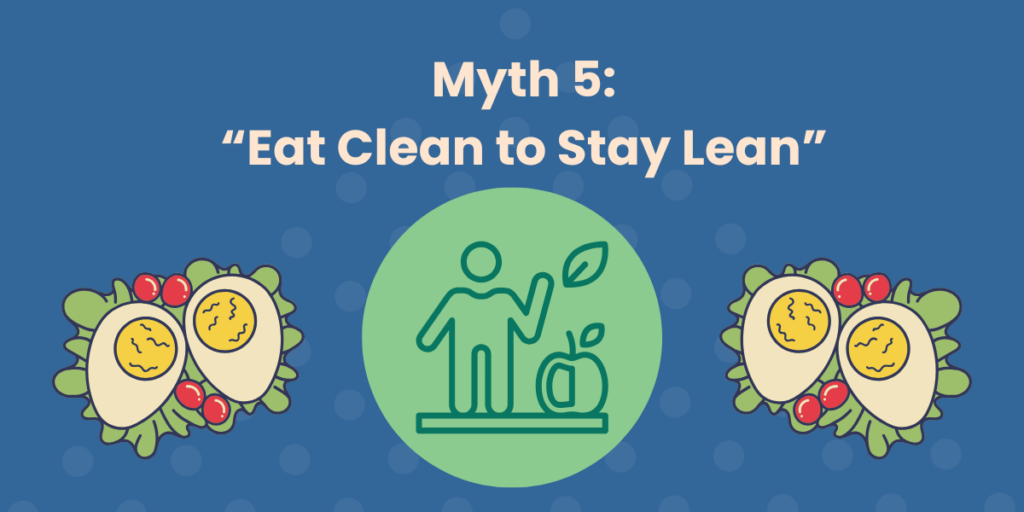
What is “clean eating”, exactly?
Define that, for me.
I find that confusing.
My mother always washed the fruits and vegetables before cooking.
As a kid, my mom made me fish sticks and put them on a clean plate.
My mom also taught me to wash my hands before and after meals.
Looks like clean eating to me.
It seems that everybody defines clean eating in their own way.
I later discovered that clean eating means cutting something out of your diet.
It seemed like the world suddenly demonized fried foods. Then carbohydrates were on the chopping block. Followed by gluten and processed foods in general.
I lost track when everything got its turn.
We demonized some foods and sanctified other foods.
We started searching for organic or non-GMO products.
Some people make sure their foods are responsibly sourced.
Regardless of their importance, it seems that we easily lose ourselves in this noise. We forget to notice how our body responds to the foods we eat.
In my opinion, clean eating is defined by our body’s ability to process food efficiently.
Let’s pretend you fill your car with fuel not recommended for your engine. Theoretically, the car had a greasy meal.
What will happen?
Usually, your car would be ok in the beginning.
However, if you keep feeding greasy meals to your car, it will start to falter, misfire, and cause damage to the engine components.
An astute driver would notice problems surfacing. Instead of treating the symptoms, the driver acts to resolve the original problem.
Wrong gas.
So use the right type.
Assuming no real damage occurred yet, then the problem will be resolved.
But what if the driver heard a convincing advertisement about pomegranate gasoline?
The ad would use a professional mechanical engineer to tout newly discovered scientific evidence that pomegranates help engines run smoothly, efficiently, and clear gunk buildup!
The driver might ignore obvious warning signs because there celebrity and professional endorsements to back up the scientific studies!
We all know better.
We know we need to return to the fuel recommended by the original manufacturer.
People listen to branding and neglect to listen to their bodies.
I believe that’s where the secret lies.
Your body will tell you if what you ate was clean.
How?
How do you feel after a meal?
Light and energetic? Lethargic and sleepy?
You can read up on all the research but don’t forget to read up on yourself.
Ultimately, your body defines clean eating for you.
Research can help optimize your understanding.
When you eat according to your body’s rules, your metabolism operates at peak efficiency.
This translates to:
- More energy
- Feeling well
- Weight loss.
Then these translate to:
- More energy to explore the world around you
- More fun and discovering new things
- New experiences with family and friends
- Generally having a playful approach to everything you do in life
Instead of being locked into one outcome of weight loss, think about the life gained.
Coach’s Guidance
It sounds like you’ve felt overwhelmed by all the rules that define clean eating because you want to do better for yourself and others.
- How has the concept of “clean eating” influenced your choices?
- What story have you been telling yourself about clean eating? How has it impacted your health?
- How does the idea of letting your body define “clean eating” make you feel?
- What would it mean to trust your body’s wisdom about food more than external advice?
- How does your understanding of self open up new pathways to your personal health?
- What steps could you take right now to listen more closely to your body’s signals?
Why “Eating After 6 PM Causes Weight Gain” Is Outdated Thinking
TL;DR
- Eating at a specific time does not inherently cause weight gain.
- The key is balancing intake and activity levels with your body’s natural rhythms.
- Mindful eating, maintaining an active lifestyle, and self awareness are important components.
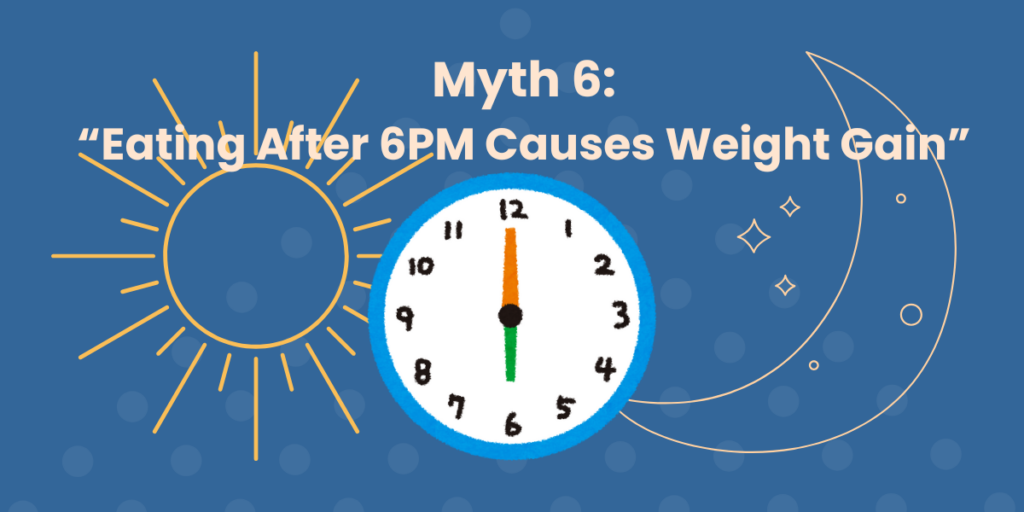
I’ve noticed a lot of information on timing your meals.
I first noticed this idea when intermittent fasting seemed popular.
There is plenty of compelling evidence to support these diet plans. [16]
However, why would eating after 6 PM cause weight gain?
There are interesting studies that demonstrate the power of your circadian rhythm. Upsetting the flow of that rhythm can lead to health complications over time including weight gain. [17]
But it seems like as long as you respect your body’s cycles, you’ll be fine.
So if eating and time are not the problem, then where did this myth come from?
We have to look at factors outside of meal timing.
Remember: The key is balance.
We balance our meals. We balance the meals with our daily cycles.
We must also balance our activity levels with meals throughout the day.
I believe people realize this need, however they conclude that eating after 6 PM causes weight gain.
The balance of intake versus output is skewed at 6 PM.
We get home from work. We’re tired. We’re hungry.
The boss tested all our nerves, and the kids are working on the last one.
So if you’re anything like me, I just want to shovel food in my mouth and binge my favorite show.
So three things are happening:
- I eat a lot
- Not mindfully
- Not choosing the most healthy options
- I sit and be lazy
- No movement
- I might get up to use the bathroom (if the urge is great)
- The environment can be stressful too
- Work
- Home
Therefore, guess what doctors will say:
- Cut back on carbohydrates
- Eat more fiber
- Walk at least 30 to 45 minutes after meals; particularly after dinner
- Stress management
“But Doc, there are so many things going on. How am I supposed to relax?”
It sounds like you work hard to support and provide for your family. You care very deeply for their well-being.
So, how can we make sure you get the care you need?
What I’ve got to say next will sound like a doctor (probably because I am one):
- Cut back on carbohydrates
- Eat more fiber
- Walk at least 30 to 45 minutes after meals; particularly after dinner
- Stress management
I know you did a double-take and scrolled up just a bit.
But that’s no mistake.
Let me explain.
Eating according to your body’s natural rhythm throughout the day seems to be the key to a balanced intake.
The other key is how you choose to fuel your body in preparation for your planned activities.
Planning to go to work and do mentally demanding work at a desk?
Have a breakfast with less carbohydrates to improve mental tasks; and higher protein balance to feel full. [18][19]
Is work physically demanding?
Breakfast with an even balance of carbohydrates, protein, and fat may help you go the distance.
Your lunch and dinner needs might change based on your planned activities.
- An active day at work
- Playing with the kids
- A relaxing evening watching movies.
If you have health conditions like diabetes or high cholesterol, this will affect your diet and activities.
Weight loss can be complicated by other chronic conditions. [20]
That is why commercials for weight loss medication have the disclaimer: Talk with your doctor to see if their medication is right for you.
So what are your thoughts?
How can we work with your body’s natural rhythms to provide it with the fuel it needs?
Coach’s Guidance
It seems like there’s a lot of frustration from clashing advice about meal timing which creates a lot of difficulties to achieve your wellness goals.
- How might lifting strict timing rules change your relationship with food and with the people around you?
- What would a balanced approach look like for you?
- What would it mean to trust your body’s signals about hunger and fullness, regardless of the time?
- If your body could communicate its ideal eating schedule, what would it say?
- What steps could you take today to slowly realign with your body’s needs?
- How might embracing a more flexible approach to meal timing enhance your overall well-being personally and with others?
The Supplement Industry’s Biggest Weight Loss Claims – What Science Says
TL;DR
- Weight loss supplements often oversimplify complex nutrient interactions.
- True supplements should fill gaps, not replace or add nutrients.
- Listen to your body’s responses and work with your doctor and nutritionist to find a balanced approach.
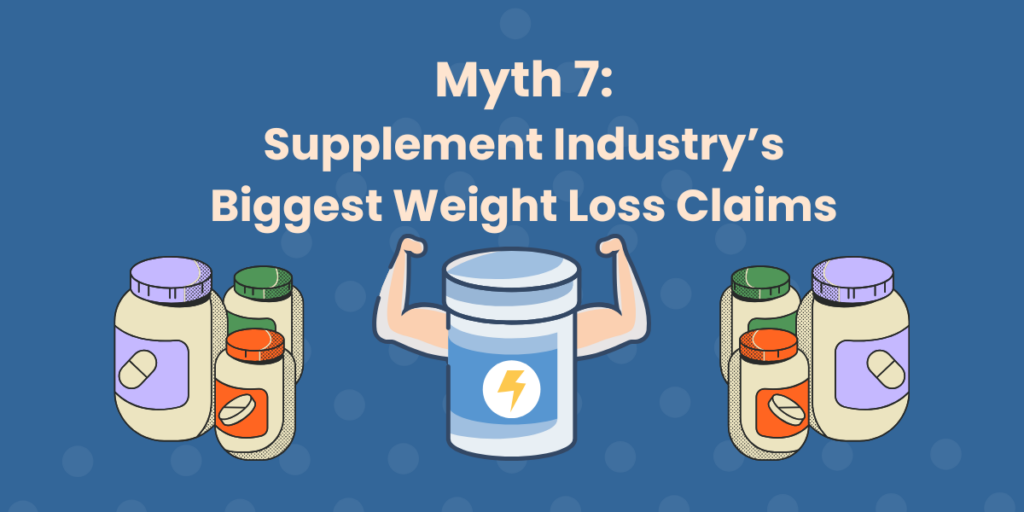
Do you remember those “Got Milk” campaigns?
They advertised that a glass of milk gives you nine essential vitamins and minerals for healthy bones.
These ads opened me to the supplement industry at the ripe old age of 7 years.
Since my mom was concerned for my health, she was happy to find that I liked drinking milk.
I remember the first time I encountered some friction in my mind regarding the healthy nature of milk. An attending physician told me that milk wasn’t good for you.
It flew in the face of all the marketing campaigns that I ever heard. So I dismissed her medical opinion and continued drinking milk. The nutrition facts were clearly labeled. Plus, I enjoyed it.
Although I knew what I was putting into my body, I had no appreciation for how my body would receive the nourishment.
I think that’s the biggest issue regarding the supplement industry advertising their products.
Research shows us that nutrients have complicated interactions.
We used to say, Vitamin D + Calcium = Strong Bones.
Notice how this is a “calories in versus calories out” philosophy.
Nutrients have complicated interactions with each other in the body.
Since science tells us that vitamin D is a fat-soluble vitamin and calcium must compete with magnesium for absorption, we get:
(Vitamin D + Fat) + (Calcium/Magnesium) = Strong Bones
So we need to take vitamin D with either oil or fat in a meal, and calcium competes with magnesium for absorption.
Can we safely eliminate magnesium from our diet to increase calcium absorption and improve our bone health?
NO.
Your bone health relies on both minerals (and others) at the right balance.
So a shift of one nutrient can have far-reaching consequences for your overall health.
What happens when you take a new supplement to help with weight loss?
Remember: The key principle is balance.
Nature automatically balances nutrients, medications, and anything within the body. [21]
So how will the balance shift if we take this supplement?
We can’t always know the exact science, but we can notice the effect.
For example: Caffeine (This is not a nutrient, but I frequently find it in weight loss supplements).
When I first started drinking coffee, I felt great!
I needed only a few sips to achieve laser-focused concentration.
Later, I might need half a cup. Later on, a mug.
Then stopping gave me a headache for a couple of days and low motivation levels.
What happened?
Caffeine acts as a stimulant. [22]
My body rebalanced the higher stimulation to return to normal.
When I stopped drinking caffeine, my body realized a lack of stimulation. So I felt low motivation, sluggish, and headache until my body readjusted the scale.
Supplements should not replace or add nutrients; they should not tip the scales.
True supplements fill gaps. Supplements should rebalance the scales only when needed.
So if a supplement advertises weight loss by increasing your fiber intake, then consider eating more vegetables and fruits. You get the nutrients and the fiber in the right balance.
If you still feel constipated after optimizing your veggies and fruits, then balance the supplement with your diet changes.
Some supplements promote weight loss by blocking fat absorption.
In that case, eating more fiber can achieve the same effect.
If you want an extra boost, then consider adding the supplement in balance with dietary changes.
Your doctor can help you balance these changes by taking your overall health into account.
Coach’s Guidance
It sounds like you’ve been burned by supplements claiming to torch fat instead of you. Now it seems you’re rightfully, very skeptical.
- How have weight loss claims influenced your approach to health in the past?
- What would a balanced approach based on nutrition from whole foods look like for you?
- How does the idea of trusting your inner wisdom over marketing claims make you feel?
- How can you envision your weight loss goals to align with how your body receives nourishment?
- How can you design a nutrition plan that honors your body’s needs?
Why More Exercise Equals More Weight Loss Isn’t Always True
TL;DR
- Find your personal “Goldilocks zone” of exercise.
- Not too little, not too much, just right.
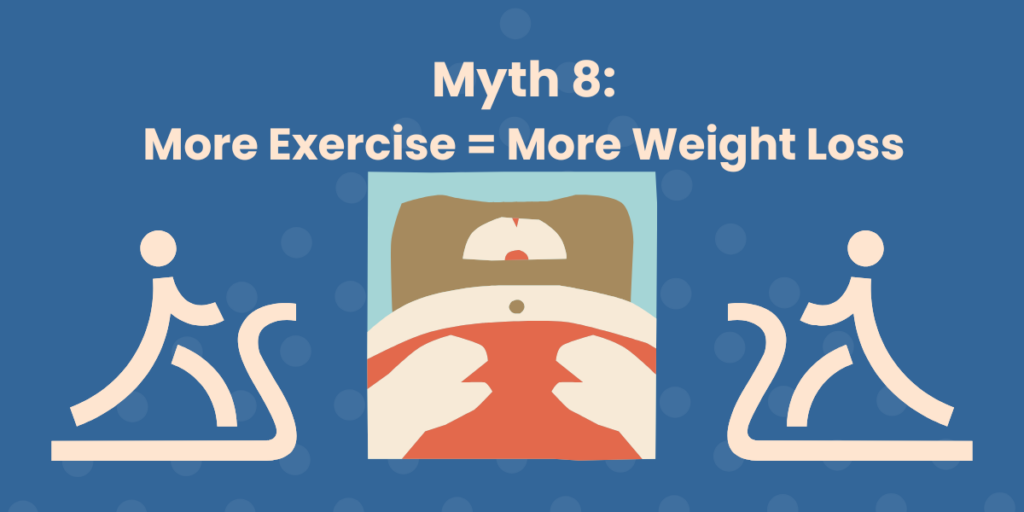
Another variation of calories in versus calories out.
Again, the body is complicated.
The body processes nutrients and exercises harmoniously.
If you do cardiovascular exercise, then you’ll see improvement in the heart and blood vessels. [23]
You will also see improvement in the brain and keep dementia and Alzheimer’s at bay. [24]
So different types of exercise make unexpected impacts.
If you do strength training, we know that you can either:
- Tone your muscles
- Make them bigger
- Improve their efficiency
So we know that different exercises can lead to different outcomes.
We also know that too much exercise can tip the scale off balance.
If we do too little, then there is no change. If we do too much, then we can cause damage.
We need to exercise in the Goldilocks zone.
However, nobody seems to know what is “just right”. [25]
On another note, people tend to do heavy exercise with crash diets.
So now you’re burning the candle on both ends.
What do you think your body will do if demand is high and supply is low?
It will work!
But just enough to get away from a saber-toothed tiger.
Then you need to rest and recover. Then you need to find food.
Your body is too smart for a “calories in versus calories out” approach.
The little old man would freeze twice as fast.
However, we cannot ignore the basic principle of weight loss:
Eat less, exercise more.
What?!
I just said that you couldn’t do that!
Not quite.
Remember: Balance.
There is a sweet spot; a Goldilocks zone.
That is why the CDC and doctors advise 30 to 45 minutes of walking daily. [26]
This is the sweet spot for optimal cardiovascular health and a myriad of other health benefits.
However, this applies to the general population.
Although this recommendation is a one-size-fits-all approach, it’s a great place to start exploring your unique exercise needs.
Coach’s Guidance
It feels hopeless to be stuck on a hamster wheel (treadmill) for hours with little or no results.
- How would a balanced approach to exercise look like for you, considering your body’s unique needs and your daily activities?
- How might focusing on the quality and variety of exercise, rather than quantity, shift your weight loss journey?
- How does the idea of a personal “Goldilocks zone” for exercise make you feel?
- If your body could communicate its ideal exercise routine to you, what would it say? Would that change day to day? Week to week?
- How can you design a routine that honors your body’s evolving needs?
- What small step can you take today to find your Goldilocks zone of exercise?
The One Size Fits All Diet Myth
TL;DR
- You guessed it – There is no “one-size-fits-all” diet.
- One size fits most. Then you have to tailor the diet to suit you well.
- You are the composer of your own health symphony.
- Orchestrate advice from various experts while listening to your body’s wisdom.
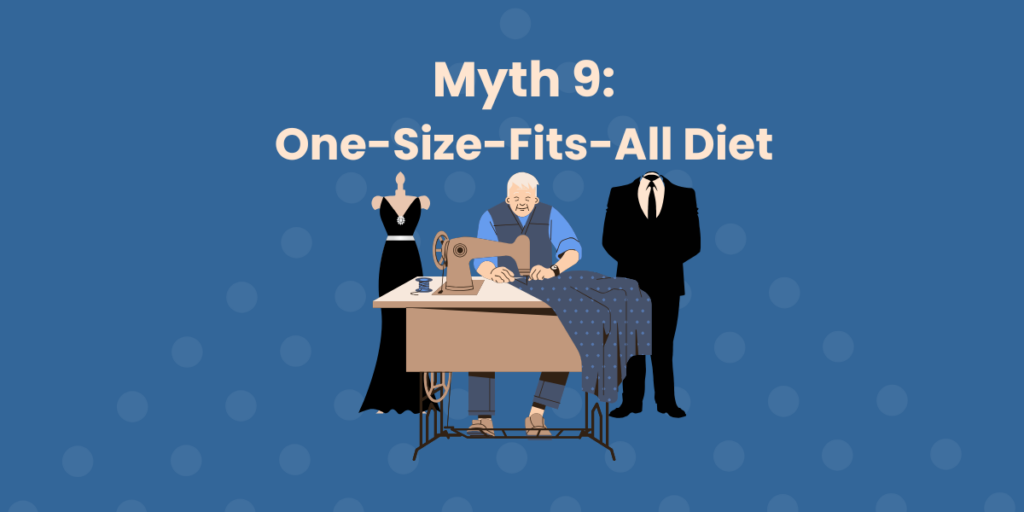
Generally speaking, human bodies are about the same.
We learned to recognize the obvious differences as kids.
But we know how to recognize a human being regardless of our form.
For a business to succeed, they need a niche.
They need to define their target audience and produce a product that would improve their lives.
One problem:
We function the same, but everyone is unique.
The same medication with the same dose might work wonders for you and can be mediocre for me.
So you’re bound to have people with great, average, and low/no results.
The same thing happens with diets.
People will have:
- Phenomenal results
- Average results
- Little to no results
From what I’ve seen, this is true of anything.
So the idea of a “one size fits all” approach does not make sense to me.
One size fits most.
Then we tailor the fit as needed.
So how do you tailor it?
You have several tailors working on your team.
- Your doctor
- Nutritionist
- Health coach
- Family and friends
- Most importantly, yourself
You are the composer.
You can orchestrate your symphony through your tailors.
Each tailor has a unique set of skills.
So you can figure out how to weave:
- Your current health status from your doctor
- Smart food choices from your nutritionist
- The impact of your lifestyle and develop personalized strategies to meet your goals with your health and wellness coach
So what is it about losing weight that allows you to fit into your passion?
Coach’s Guidance
It feels like those frustrating cookie-cutter diets don’t take your unique body and life into account.
- What would a personalized approach to nutrition look like for you?
- How might viewing yourself as the composer of your health symphony change your approach to weight loss and health?
- What story have you told yourself about the “right” way to eat, lose weight, or be healthy?
- How does the idea of tailoring your diet to your individual needs make you feel?
- How can you work with your tailors to create unique nutrition goals that fit your needs?
Conclusion
Stop for a moment and forget everything you just read.
Consider this question:
How do you envision yourself?
If your mind immediately goes to how you want to look good or to feel better, then I ask you to go a little deeper.
Tell me more about what feeling better means to you.
Tell me when was the last time you felt that way?
When you search within yourself, you rise and myths fall away.
You might slip or fall, here or there.
But when you align yourself with your values and your body’s needs, you’ll easily see through the smoke.
Health and Wellness coaching
Would it be a bad idea to work together now?
If You’re Not Ready Yet, That’s OK.

References:
25.Buckner SL, Moreno EN, Baxter HT. The dose-response relationship between resistance training volume and muscle hypertrophy: There are still doubts. Journal of trainology. 2023 Dec 5;12(2):29–36.26.CDC. Physical Activity for Adults: An Overview [Internet]. Physical Activity Basics. 2023. Available from: https://www.cdc.gov/physical-activity-basics/guidelines/adults.html


